‘Côte d’Ivoire, eh?’ said the businessman in the seat next to me on the Air France flight from Paris to Abidjan, as he flicked through the wine list. ‘Perfect place to have an affair.’
Seriously? I’d had endless friends prior to my departure sniggering that I – middle-aged white female – was tragically going to West Africa as a sex tourist, to patrol the bars and beaches, barnet possibly culturally appropriated into dreadlocks, in the hope of snagging a ripped Rasta (will I get cancelled for writing all that?) or two. And Mr 7A was now indicating it was an ideal destination for a planned romantic getaway too. Crikey!
I pondered his words as he hesitated between the Chablis and the Pouilly-Fumé. My husband had initially been keen on joining me on the trip and then decided against on the grounds that he’d read about Cote d’Ivoire on Wikipedia and concluded ‘it looked dreary’. He also claimed there was no need to go as he went to Namibia during his gap yah between Eton and Cambridge and worked in Nairobi for a few months in 2001.
I was the only non-local on the beach, which is wide, sandy and like Goa used to be before the vegan yoga-hippies in tie-dye ruined it
Well, I too had already been to Africa – Morocco, Egypt, Kenya, Tanzania, South Africa – but I’d never been to West Africa, and I’d never been to the Ivory Coast, which sounded remote and glamorous. I mean, ivory! And coast! Plus ‘perfect place to have an affair’ – what’s not to like?
I felt some response was required to my travelling companion’s claim. ‘Oh, is it?’ I asked, because that hadn’t been obvious from my initial googling into this fertile francophone land of virgin rainforest, 550km of coastline, nine national parks of infinite variety (there’s a parc animalier and a parc marin), the land of the coffee and cocoa bean and Premier League footballers. ‘Why?’
‘Because nobody ever goes there,’ he said, holding out his glass for his first pour. ‘It’s not like going for a dirty weekend to Venice, or Paris, or somewhere, where, y’know, you’re bound to be spotted by someone you know.’
Seven hours later we landed in Abidjan. For some reason my passport was taken away. It crossed my mind that I was now a hostage. I’d have to spend the rest of my days in the VIP lounge at the Félix-Houphouët-Boigny International Airport, not reading Dickens but watching France 24 on television, as in some new version of A Handful of Dust updated by a sadistic sensitivity reader.
I went into the city sans passport, and Mr 7A was dead right about one thing. This booming West African business capital was not like Venice or Paris in the slightest. High-rise towers, Sofitel hotels, PwC headquarters, a modernist cathedral and – a surprise this – flocks of noisy bats wheeling overhead. Whereas every prospect pleases in those two museum cities, even Abidjan’s advocates would admit it is an undistinguished traffic-jammed urban sprawl on a lagoon, its busy streets packed with cars and roadside hawkers selling, well, pretty much anything and everything.
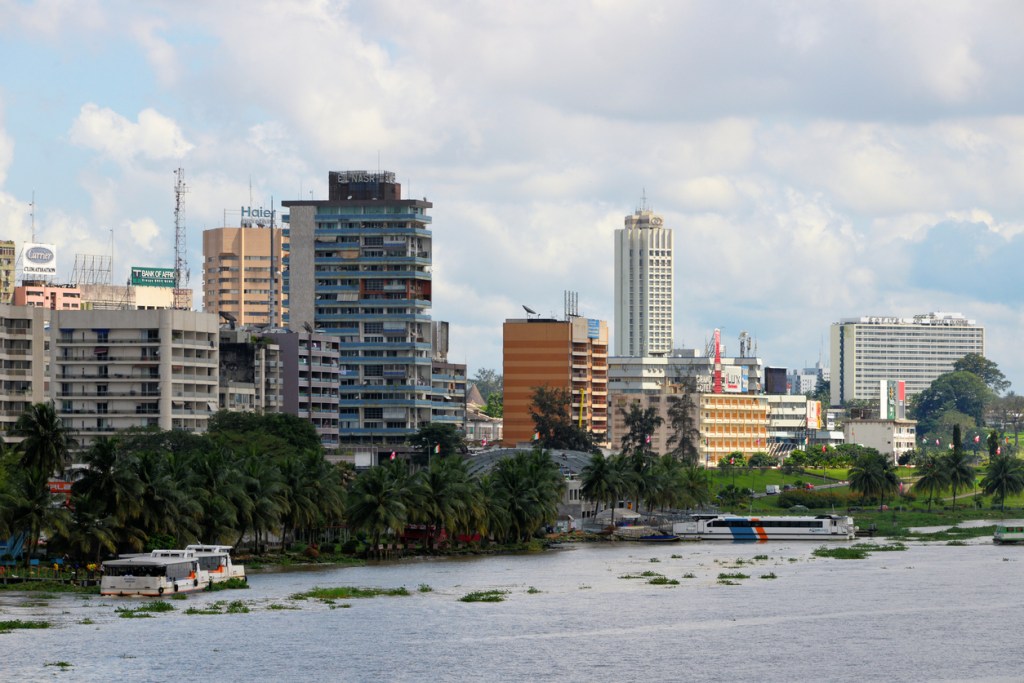
As graceful women in wax-blocked prints processed down pavements carrying wares in baskets on their heads, ziggurats of oranges or pincushions of carrots, as if they were perpetually trapped in some finishing-school loop, young men in Drogba T-shirts, shorts and slides showed us the goods at every traffic light. I was asked to buy the following through the car window: cycle tyres, tissues, coconuts, crisps, doorbells, loaves of bread, paddling pools, maps, trainers, hats, a collapsible hanging cupboard, desk ornaments, iced water, prawn crackers, reusable plastic water bottles, remote controls, pillows, watches, razors and a picnic table. And why not?
But I also saw and strolled through virgin rainforest – the Banco national park, which sits right next to one of the arterial highways of Abidjan and acts as a great green lung and waterboard for the city. Our guide on the trail was keen to show us the amenities as well as 700 varieties of trees, the small, brown, greasy Banco river writhing with catfish and a museum containing monkey heads. ‘Petanque,’ he said, pointing to a marked-out pitch of sand and silver balls. ‘Petanque in the rainforest!’ I repeated, wondering whether that would be a better headline for this piece (if not my next potboiler) than ‘A bad girl in Africa’.
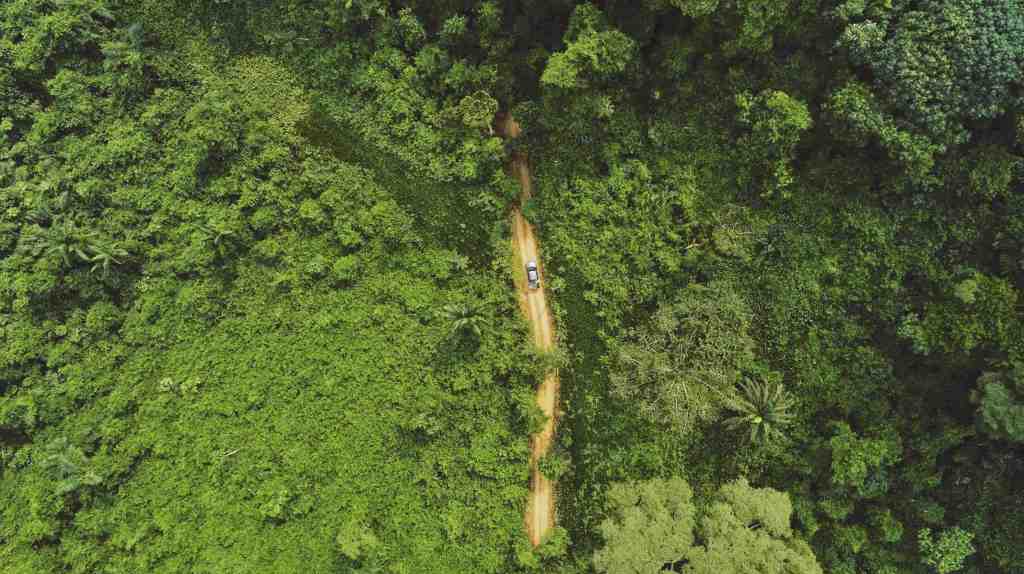
Which brings us to another possible reason Cote d’Ivoire is or could be the perfect place for an affair, if not the holiday of a lifetime, or a first-choice honeymoon destination (to put it politely). The rhythm to the song is African, but the bass-notes if not the grace-notes are French: from the names of roads and schools (such as Boulevard Valéry-Giscard-D’Estaing and Complexe Scolaire Noces de Cana) to the fact that you have echt croissants and baguettes for breakfast and there seems to be a very free trade deal between the Ivory Coast and France when it comes to fine wine.
Indeed I stopped counting the French brands I spotted, from Carrefour to Paul the patisserie in the former capital of the then French colony. There seems to be a pharmacie with a lit green cross outside – no doubt containing all those important unguents for les seins so necessary for French women – on every corner of each dusty West African city street.
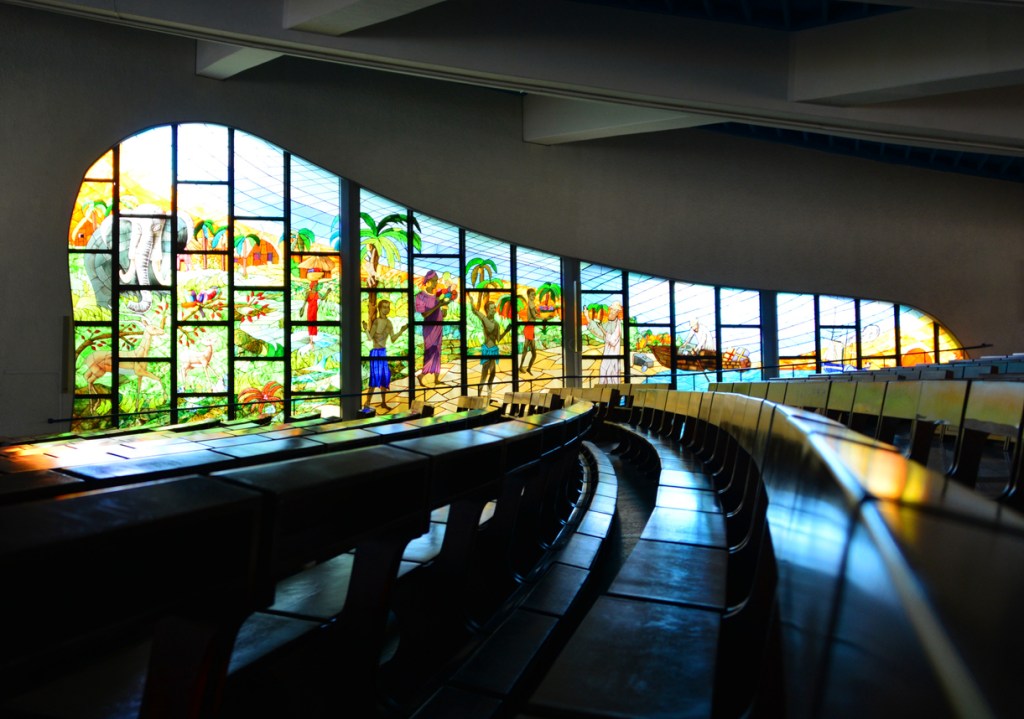
After a day and a night in Abidjan (go and see the technicolour stained glass that wraps around the interior of St Paul’s Cathedral) I headed out to Grand-Bassam, the colonial ghost town mashed together with a traditional village city an hour or so away on the coast proper. A Unesco heritage site, the colonial buildings seemed abandoned and almost derelict, the energy gathering in a craft village and market.
I did not tarry long but headed to Assinie, the town where you stay on the side of a lagoon but can chug over by boat to a narrow spit of land, and on the other side of this spit is the Atlantic Ocean. There are little hotels and beach houses and pools, and the president has a second home here. Assinie is the Hamptons of Cote d’Ivoire, basically – where the rich kids and bigwigs from the city and oil millionaires come to kick back at the weekend.
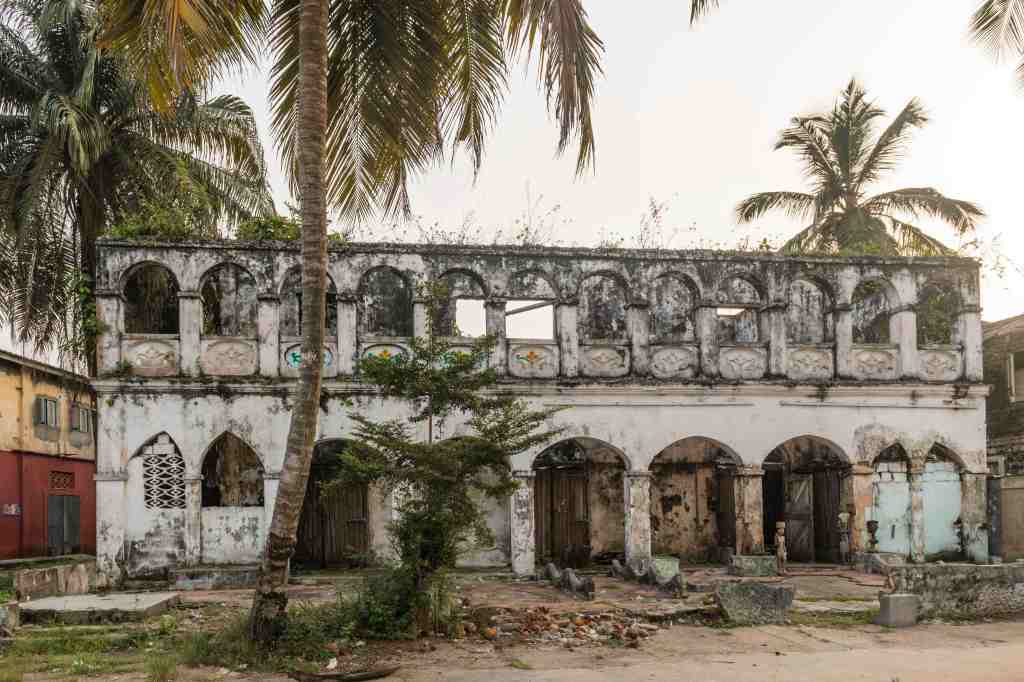
The main attractions for me were this. First, the beach is wide, sandy and the Atlantic rollers almost surfable, so it’s like Goa used to be before the vegan yoga-hippies in tie-dye ruined it. It’s a place dependent on two things: fishing and, a long way down, tourism. As a result I was the only non-local on the beach and I spent hours watching the men of the village drag in the curved wooded boats called pirogues, painted with Bible verses and psalms, singing as they did, 12 to a line, with the last man on the line a two-year-old.
Second, the Iles Ehotile – the marine national park, which I motored out to for a day, an archipelago of islands of the mangrove, virgin plains, and a cornucopia of plants, insects, birds and trees to amaze even Attenborough. I was taken on a brief ramble (in fact, the heat and humidity preclude anything but an amble) and was captivated by two medicinal plants. First was a flower with a pod that you can pop and juice and a seed squirt out. My camo-clad guide demonstrated. Then he mimicked rubbing his chest. He plucked a flower, and popped the bud in my hand, and it split, releasing a clear gel. ‘Pour raffermir les seins,’ he said. When in Rome! I of course had to anoint my embonpoint under my T-shirt while my entourage from the tourist board and national park took photos and laughed.
Then, he showed me a spindly bush. ‘Pour les hommes,’ he said, telling me it made chaps ‘tres fort’ (he gestured to his crotch) and ‘encore dix-huit ans’. None of the men laughed – too serious I suppose.
The country is working on a strategy to develop tourism as the third biggest industry after coffee and cocoa and marketing itself as ‘Sublime Cote d’Ivoire’, and it has a lot going for it. National resources, natural beauty, plus sophisticated patrimoine – a happy fusion of West African and French culture. But there’s still a long way to go, I’d say.
I did begin to fall a little in love with West Africa, especially after a delicious last lunch in Mobutu Sese Seko’s old villa, which is now a dictator-chic boutique hotel, and very especially as my passport was delivered back the day before departure. But sorry, Mr 7A. I left the perfect place to have an affair sadly without having had any opportunity to debut my even firmer breasts.

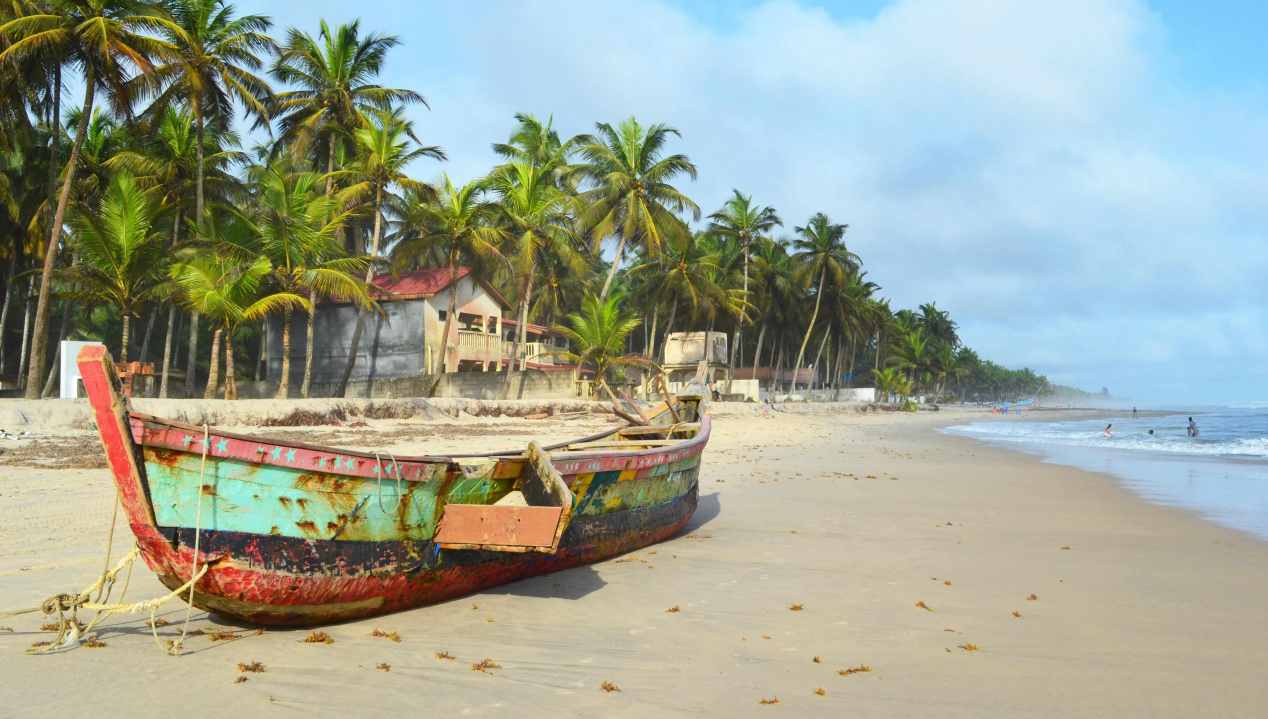
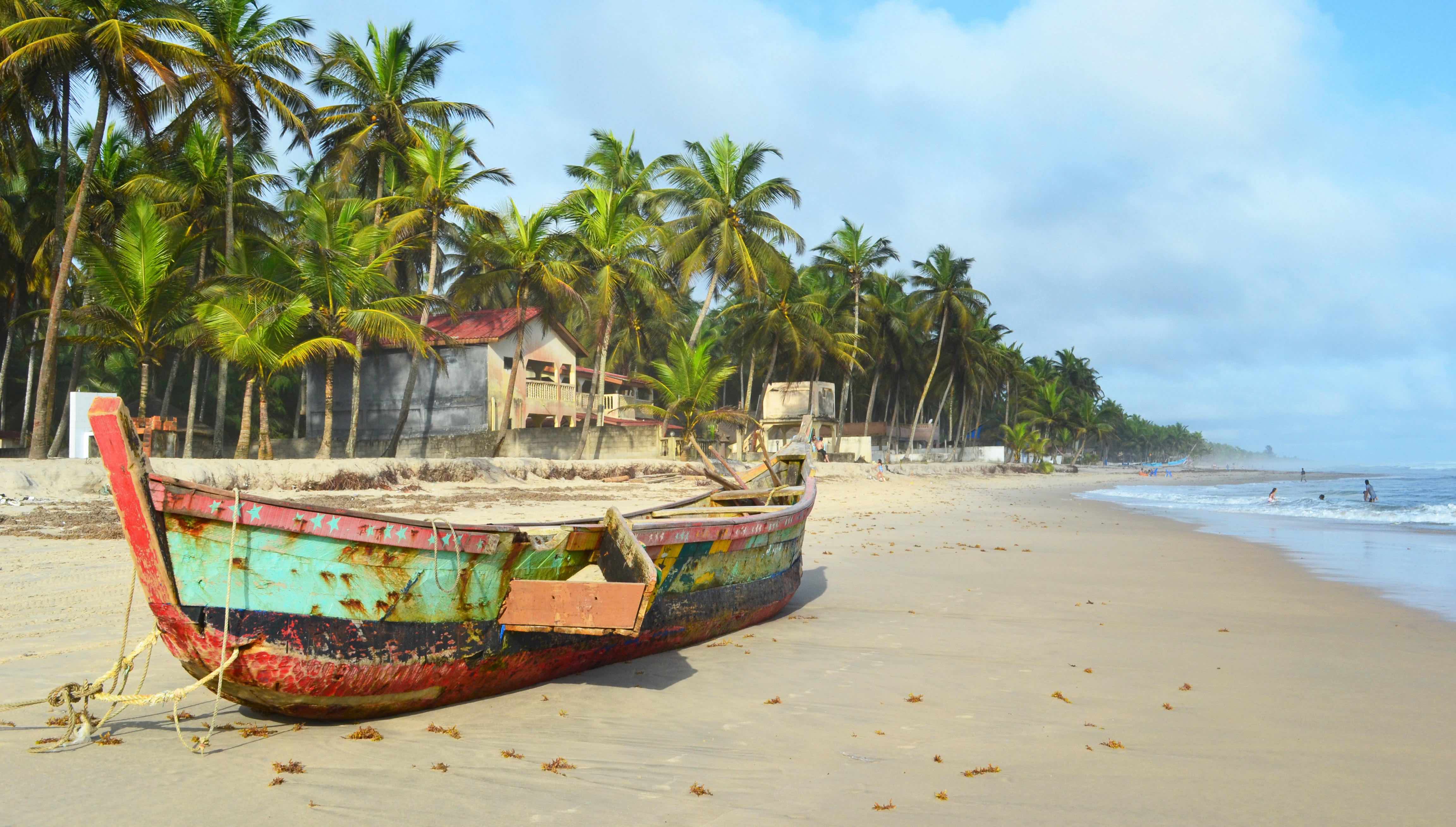




Comments